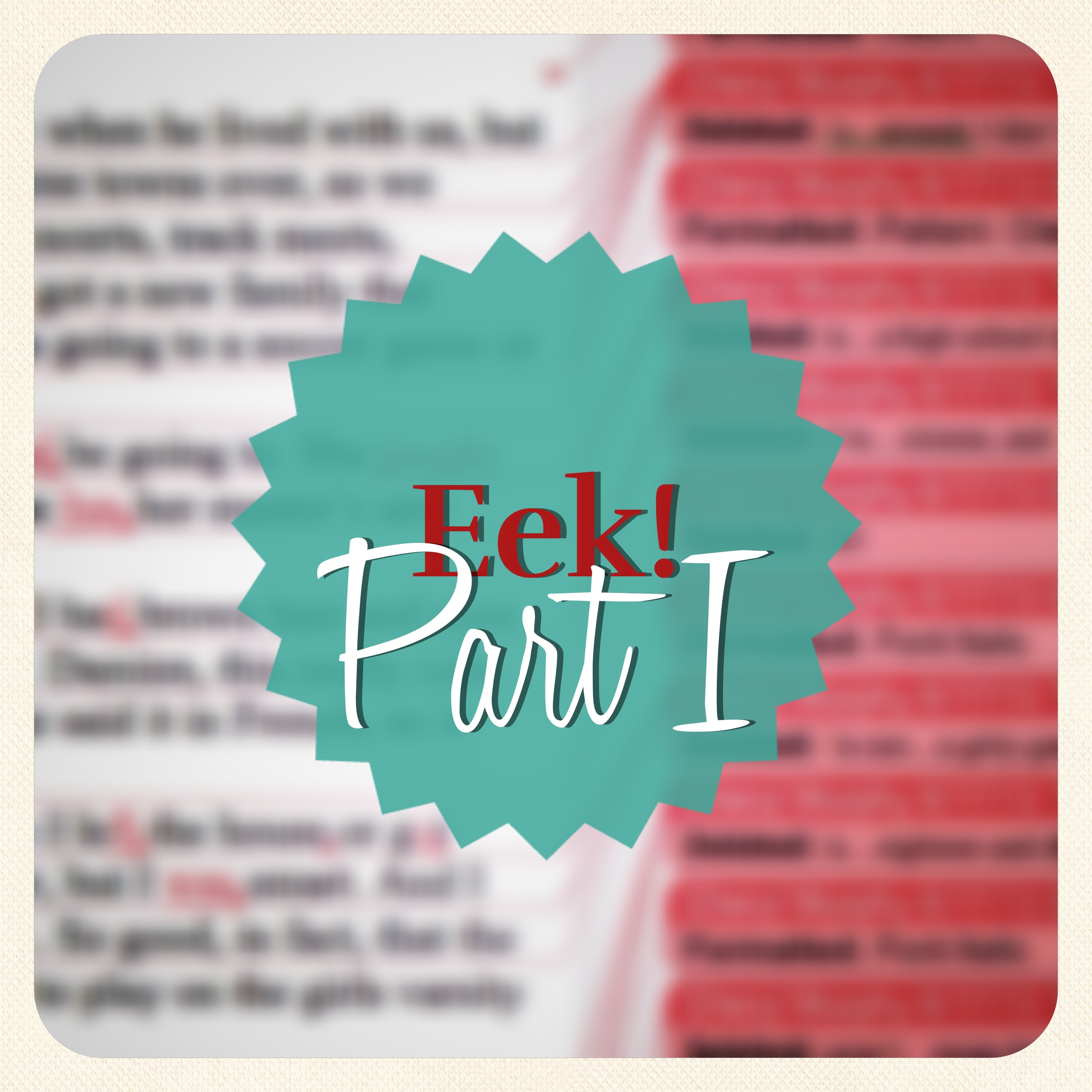[dropcap]L[/dropcap]et’s face it, most authors generally don’t know what an editor’s job really is. They have a basic idea, but they don’t have anything very detailed. Unfortunately, that’s how authors end up hiring someone they probably shouldn’t. They just don’t know any better.
(In a few weeks, we’ll go over how all of this applies to fiction. For now, the next few posts will be an introduction to the basic job functions of each type of editing.)
There’s no great mystery to what copyeditors do. Copyeditors ensure the 4Cs:
- Clarity
- Coherency
- Consistency
- Correctness
They do this through mechanical editing, correlating parts, language editing, content editing, permissions, and typecoding
They are not proofreaders. I will cover proofreading next week.
It’s not as easy as it sounds. I know, shocker, right? It’s not like a person can just say they had excellent grades in AP English in high school, tested out of a couple English classes in college, so it should be a cakewalk. Yes, I actually said that. I’m not making fun of anyone. I actually said that. ME. I’m telling you this to illustrate how easy it is to hang your shingle and call yourself an editor.
I can say with a bit of pride that I knew it wasn’t enough. At least I didn’t go into it thinking it was easy-peasy. I believe part of the credit there belongs to the fact that I’m a writer too, so it wasn’t something I thought I would just be able to do without understanding the job of a copyeditor. I worked very hard to teach myself all about copyediting, and I put the money I earned toward getting certification.
But not everyone does that. So I’m taking up the cause to teach writers the basic functions of editing. If you know what an editor does, you can better understand what you’re looking for in an editor, and you’ll know what to ask for. And when you receive your file, you should know what kind of editor you hired.
Levels of Editing
It should be noted that in all of this, a copyeditor is not rewriting. An editor may give examples of what they are suggesting, but they are not going to rewrite your words. The words used to correct or restructure should still be yours. Any changes of meaning would be unintended.
A query is any comment made on an edit. Sometimes they are questions, sometimes they are comments or suggestions. Any electronic edit (correction, deletion, move, etc.) should be considered a query, even if there isn’t an actual comment made. Authors may accept or reject as they deem necessary. Nothing an editor does is ever a requirement on the part of the author.
Light Edit
- All mechanical issues (it’s either right or wrong or within the editor’s/publisher’s style parameters)
- Check the correlating parts like tables, charts, footnotes, chapter numbers
- Ignores items that are not errors (it may not be well worded, but it’s not wrong)
- Might point out overall issues like jargon, wordiness, or distance, but makes no corrections to them
- Points out areas that need clarification
- Query facts that seem questionable (but not fact checking)
- Mark areas that may require permissions (but an editor is not a lawyer and can’t give advice on such)
- Note format and typecode (if required or requested)
- Style sheet
Medium
- All mechanical issues (it’s either right or wrong or within the editor’s/publisher’s style parameters)
- Check the correlating parts like tables, charts, footnotes, chapter numbers
- Queries awkward wording and corrects minor awkward wordings
- Suggests revisions for wordiness
- Clarify or query confusing/unfamiliar areas if possible
- Query and resolve questionable facts easily corrected through normal references on hand
- Query structure and logic
- Mark areas that may require permissions
- Note format and typecode (if required or requested)
- Style sheet
Heavy
- All mechanical issues (it’s either right or wrong or within the editor’s/publisher’s style parameters)
- Check the correlating parts like tables, charts, footnotes, chapter numbers
- Queries awkward wording and corrects minor awkward wordings
- Corrects wordiness, and queries when author correction is required
- Clarify (if possible) or query confusing/unfamiliar areas
- Query and resolve questionable facts, and fix where appropriate (Copyeditors are not meant to be fact-checkers; they cannot possibly know everything.)
- Query structure and logic, and fix where appropriate
- Mark areas that may require permissions
- Note format and typecode (if required or requested)
- Style sheet
These are the base services copyeditors will provide. Specific fields of editing will have additional services dependent upon the needs of the specific field.
You can find more detailed information at the Bay Area Editor’s Forum.
The information provided in this post came from Amy Einsohn’s The Copyeditor’s Handbook.


or if you prefer, Barnes & Noble.
You may also be interested in Carol Fisher Saller’s The Subversive Copy Editor.


or if you prefer, Barnes & Noble.
And for the writers that want become better at self-editing before submitting to an editor, you might like Renni Brown and Dave King’s Self Editing for Fiction Writers: How to edit yourself into print.


or if you prefer, Barnes & Noble.

No Comments